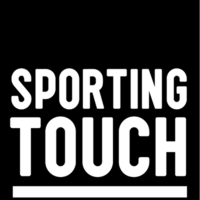
GUIDANCE REGARDING ASSAULTS ON MATCH OFFICIALS
This guidance has been produced by The Referees’ Association Representation Team as a reference point should a Match Official be the victim of an assault.
If you suffer an assault or serious abuse, then please contact us as soon as is possible. We are available at weekends and outside of normal office hours. Our contact details: -
Mobile – 07718 485 892
Email – web@the-ra.org
Context
Assaults against Match Officials are uncommon. However, when they occur it is important to know what to do.
Any assault is a traumatic event.
The RA wants to know of all such incidents to be able to help Members. Our services are always free of charge to our Members.
Our specialist Representation Team includes experienced lawyers. Our Welfare Team includes professionals skilled in empathy. Our teams have significant experience.
We give full and ongoing support plus practical advice, beyond merely reporting an assault.
In practice, criminal charges/proceedings can run in parallel with football disciplinary proceedings.
Types of assault
There are three basic types of assault offence set out in law – Common Assault, actual bodily harm (ABH) and wounding / grievous bodily harm (GBH).
The offences are primarily defined by the harm caused to the victim. Common Assault is at the lower end of harm and GBH at the upper end.
The offences cover everything from threatening words to a severe physical attack that leaves the victim permanently disabled.
The lowest level of assault is Common Assault, defined in criminal law as intentionally or recklessly putting another person in apprehension of immediate, unlawful physical violence.
The mere threat of assault constitutes Common Assault.
If force is applied the offence may become ABH - or even GBH, if physical injury occurs.
Public Order Act offences
There are also criminal offences, which might be committed under the Public Order Act if a person deliberately causes intentional harassment, alarm, or distress.
This means using threatening, abusive, or insulting words or behaviour.
Public Order Act offences are frequently charged for incidents which take place in the street. That is often when people have become abusive/argumentative, but there have been no threats of using unlawful violence.
Examples
Actions within football that are likely to be deemed an Assault include:
- Knocking the notebook from a Match Official’s hand(s)
- Taking the referee’s pencil and/or breaking it
- Verbally threatening violence against a Match Official or raising a fist at a match official
- Kicking or throwing the ball at a Match Official (it does not need to make contact to come within the definition of Common Assault)
Depending on the circumstances the following actions may be deemed ABH:
- Pushing, poking, or barging a Match Official
- Spitting at a Match Official, the spital does not have to make contact with the Match Official. If it does the offence may become ABH. Under Covid conditions this offence may be escalated to a higher level.
Any action greater than the above may be deemed a higher category of assault. Examples might include:
- Kicking, punching, or head-butting a Match Official; especially where
- The injuries caused amount to cuts or abrasions, or minor swelling or bruising.
Our advice
In the unfortunate event of an assault - or if you are in fear for your safety due to the actions of others during a match – we suggest the following procedures:
1. The match should be ABANDONED immediately unless YOU are CERTAIN and SATISFIED that continuing the match does not compromise BOTH your OWN SAFETY AND the safety of others.
2. Bear in mind there could be a delay in experiencing a physical or psychological reaction to an assault and that abandonment may reduce that impact.
3. Take appropriate action regarding misconduct – but do not put yourself, or others, at further risk of harm.
4. Seek any medical treatment as a priority.
5. If safe to do so, obtain the names/contact details of witnesses and ask them to preserve any video footage e.g. if taken upon mobile telephone. These details can be included in your Report and passed to the Police.
6. If appropriate, the respective Club Secretaries might be contacted for any CCTV footage or player contact details.
7. If the match has been abandoned, leave as soon as possible. Do not put yourself in any further danger. You might wish to ask someone to accompany you when leaving the ground.
8. In all cases where a Match Official has suffered assault, make a prompt report to the Police. This should be by telephoning 999 if fearful of ongoing threats, or by ringing 101 if no imminent danger.
9. Obtain and record the Police Incident Number, plus the name of any investigating officer.
10. Some police forces may not accept reports via 101 and may direct you to complete an online report. Such reports should still produce an Incident Number
11. Do not accept any suggestion by the Police that they will not investigate football matters because they fall within CFA/Football Association jurisdiction. If such comments are made, ask to speak to a more senior officer. If necessary, threaten a formal complaint to the Chief Constable.
12. If the Police take action against the perpetrator, you will be required to make a statement. The Police have a wide range of options, short of formal charges, which includes arrest and interview, formal cautions, and formal advice.
13. If there is a criminal charge, you may be asked to give evidence at a trial if there is a Not Guilty plea. Attending Court can be a daunting process. However, full ongoing support will be available from our Teams. At Court, you are also likely to be supported by the Witness Service.
14. If the assault has taken place outside of the match (e.g. returning to your car) the above steps should still be followed as appropriate.
15. As soon as you can:-
- Make a full written or typed record of your experiences on the day;
contact us, plus your County Football Association (CFA) Referee Development Officer and the Secretary of the Competition to report the facts. They can be contacted by telephone, before any report is written. Like us, they are there to support and help you. Contact details can be found in your CFA Handbook.
- Submit a report to the relevant CFA without delay. Mark any form, email, or text as “Referee Assault”;
16. In cases of assault requiring medical attention, ask your doctor or hospital casualty department for written details of the injuries sustained.
17. Photographic evidence of any injuries is usually very helpful.
18. If you receive medical treatment and are unable to submit reports/make telephone calls, ask us or your LRA to contact the CFA on your behalf.
19. In cases involving Police action, we help you keep in touch with the Police officer dealing with the case so that you can update the CFA/RA/LRA.
Please remember, Referee Assaults are not common but they can happen. The Referees’ Associationis here to support you.
YOU ARE NOT ALONE
More detailed information on the role of the RA’s Representation Team is available via the RA.
The Representation Team
The Referees’ Association
June 2022
Our Partnerships
Partnerships are often formed between individuals, agencies or organisations with a shared interest to address specific issues. Our evidence reveals that our members young and old often require mental, emotional, financial, medical help, support and guidance. The Referees’ Association champion the work of those agencies that provide this support in times of need. Should you require support please contact the relevant agency below or the RA Head Office.
Learn more
Join the Referees Association
The National RA recommends that prospective members should join through their local LRA, the easiest way being to attend one of the many local association meetings that take place across the country on a regular (usually monthly) basis. Find your nearest branch now.
Alternatively, online membership is now available for any referee who wishes to take up central membership. The National RA will then allocate you a local branch. Join now.




















